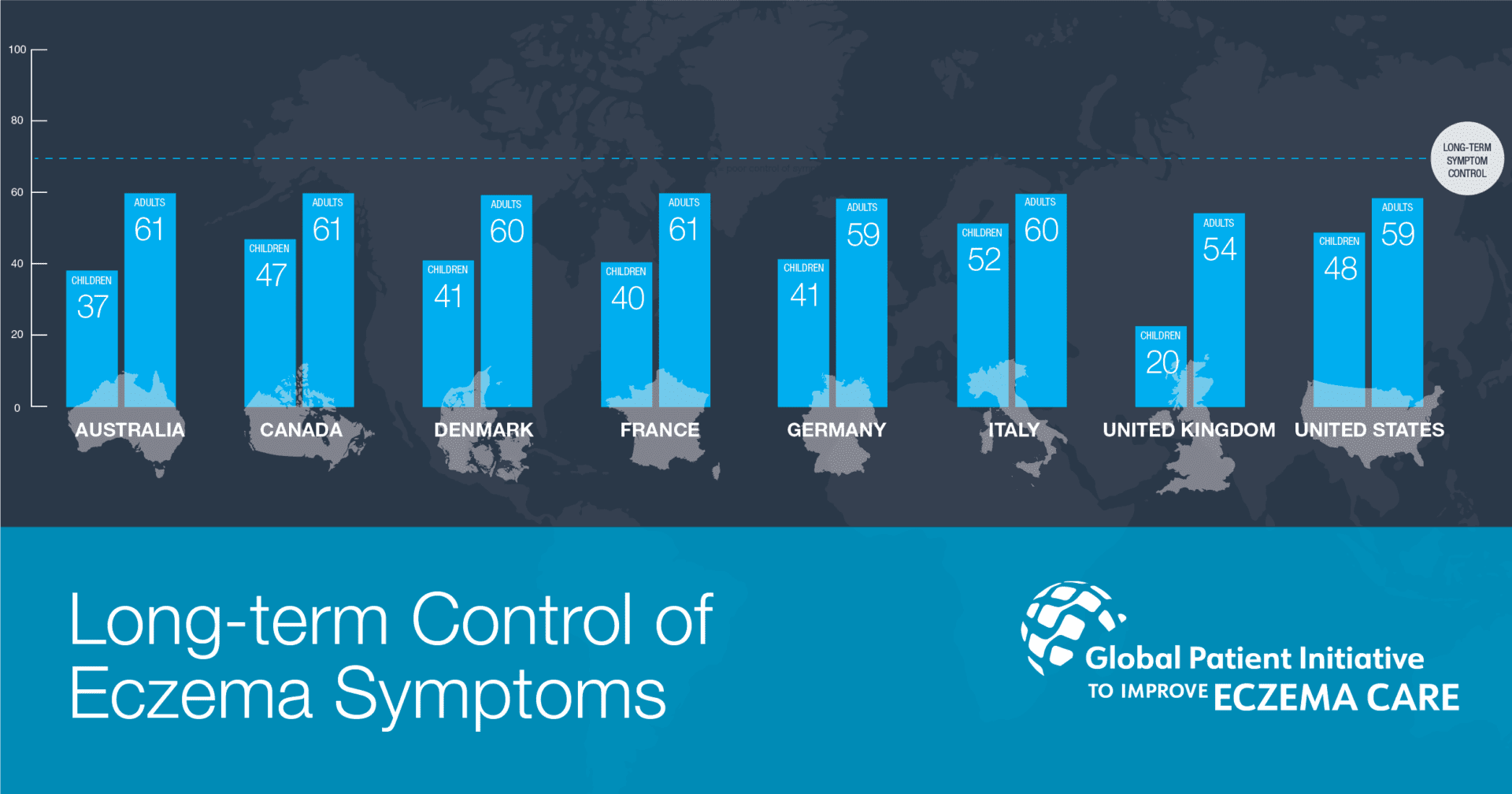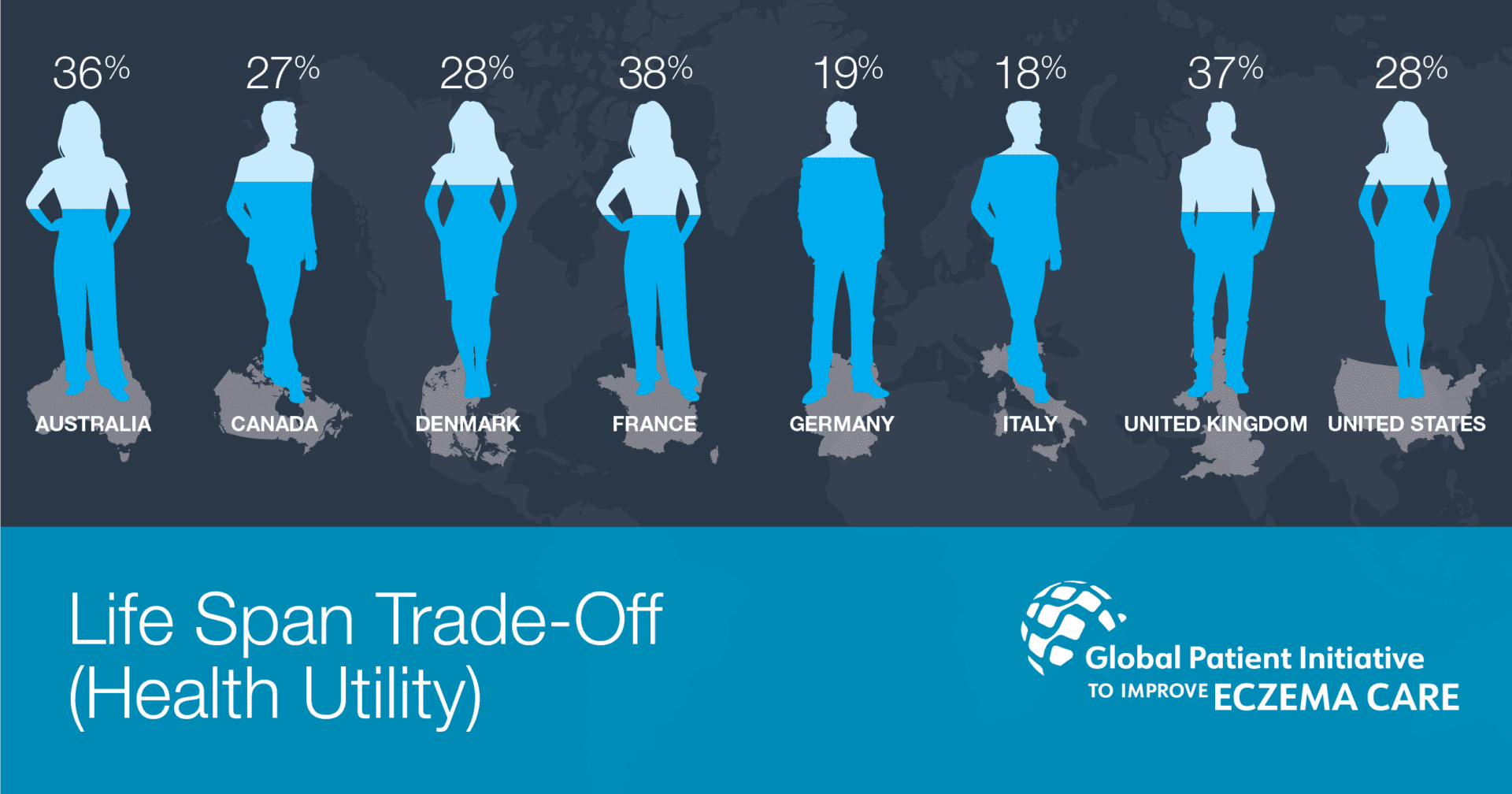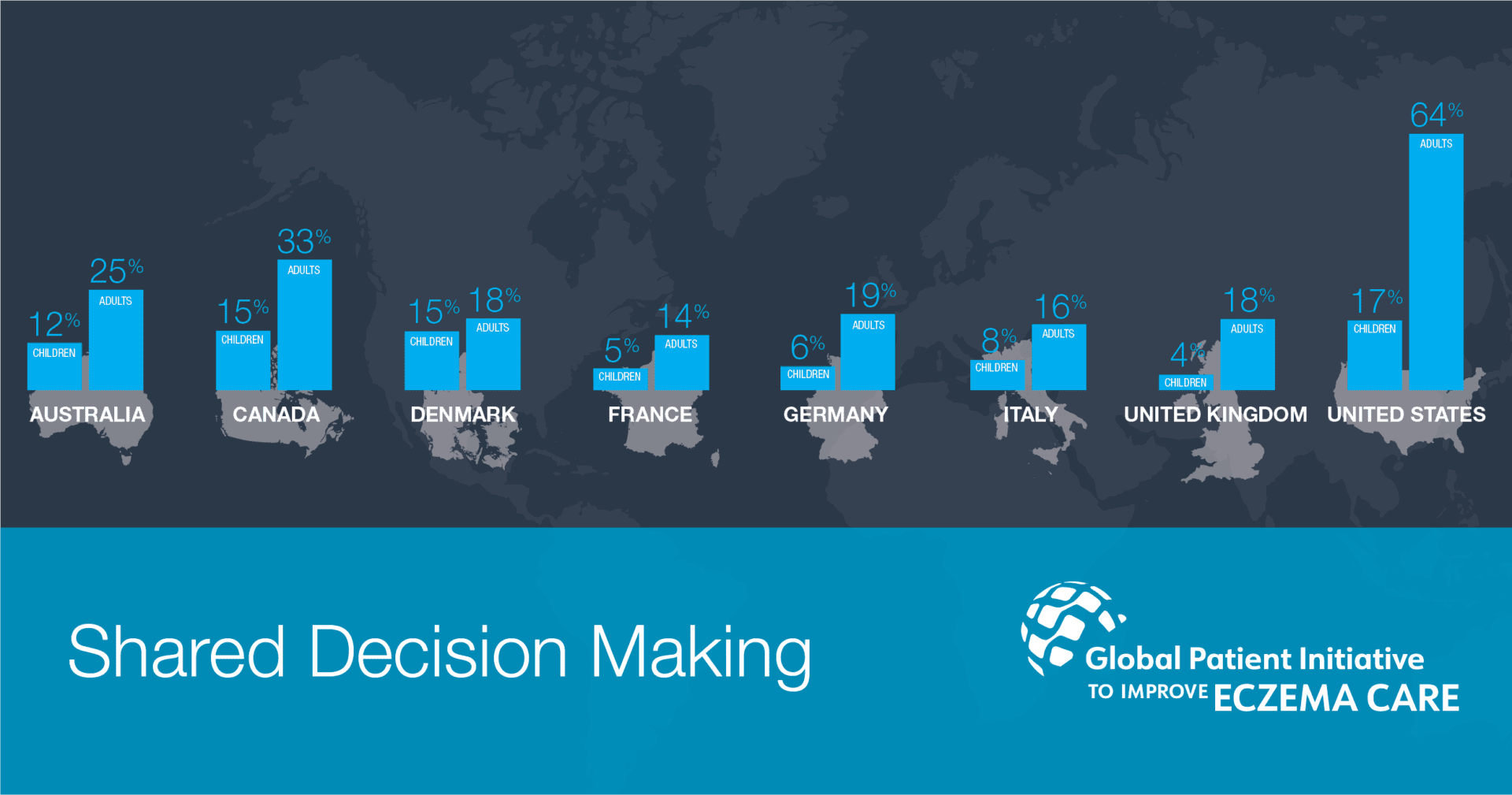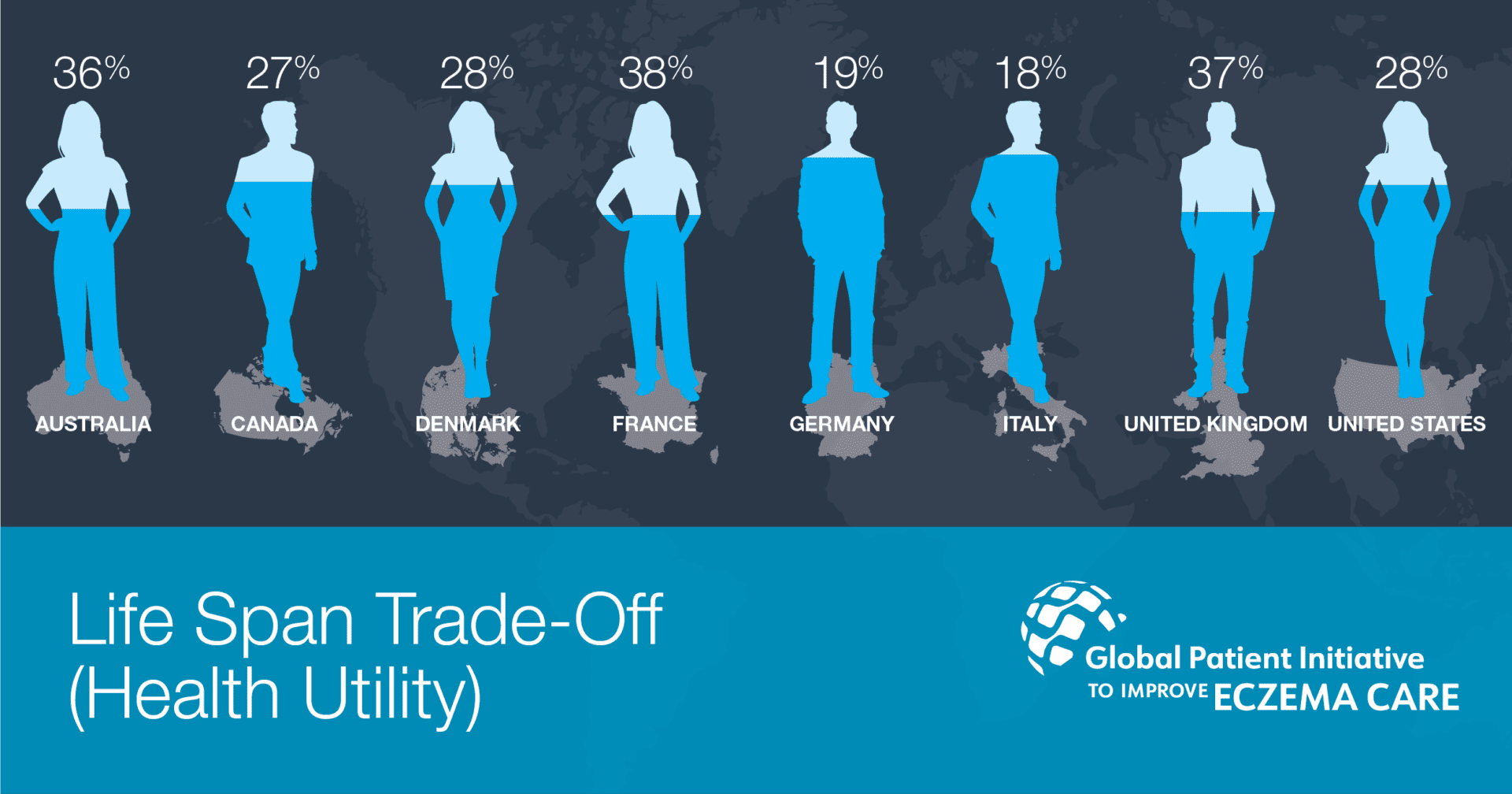New study finds low treatment satisfaction, poor control of eczema symptoms, high psychosocial burden and clear gaps in patient-centered care for eczema patients worldwide.
The Global Patient Initiative to Improve Eczema Care (GPIIEC), a partnership of eleven patient organizations, today (6 April 2022) released a global report of eczema patient care in eight countries: Australia, Canada, Denmark, France, Italy, Germany, United States, and the United Kingdom. National Eczema Society contributed views and experiences of people with eczema from the UK.
The Initiative is a global collaboration to establish common measures to assess the responsiveness of health systems to the needs of patients and their caregivers, and to identify opportunities for improvement.
Eczema is a long-term relapsing inflammatory skin condition that impacts approximately 15% to 20% of children and 1% to 3% of adults globally, resulting in a significant patient burden and high demand on health care systems. A global survey by the GPIIEC that received over 3,000 responses found that patients in every country, and particularly those who lived with moderate to severe eczema, are struggling to achieve long-term control of their eczema symptoms and report limited satisfaction with current treatments.
Survey respondents from the UK, both adults and parents of children with eczema, reported the lowest or low scores on the measures for long-term control of eczema symptoms, satisfaction with eczema treatments, patient education, shared decision making and life span trade-off.

Poorly controlled eczema, which does not respond well to current treatments, has a substantial impact on patients’ health-related quality of life. Based on adult patients’ descriptions of their health, they would be willing to sacrifice between 18-38% of their remaining life span in order to be restored to perfect health. Key drivers of lower quality of life were the pain and discomfort of eczema and the mental health impacts such as anxiety and depression.

Moderate to severe eczema is complex and chronic, demanding a high degree of patient involvement in ongoing symptom management. However, education and training for this role is minimal and patient input into treatment decisions is lacking in almost every country surveyed. Interestingly, shared decision making, defined as asking patients and caregivers about their priorities during a medical visit, was predictive of symptom control. This finding suggests that such involvement may improve medical care and outcomes, and serves as a target for improvement for health systems in each country.

About Global Patient Initiative to Improve Eczema Care (GPIIEC)
GPIIEC is a patient organization-led effort to measure the performance of health systems in meeting the needs of people with eczema (atopic dermatitis) and their caregivers using a common methodology to allow for direct comparisons. For more information: www.improveeczemacare.org

